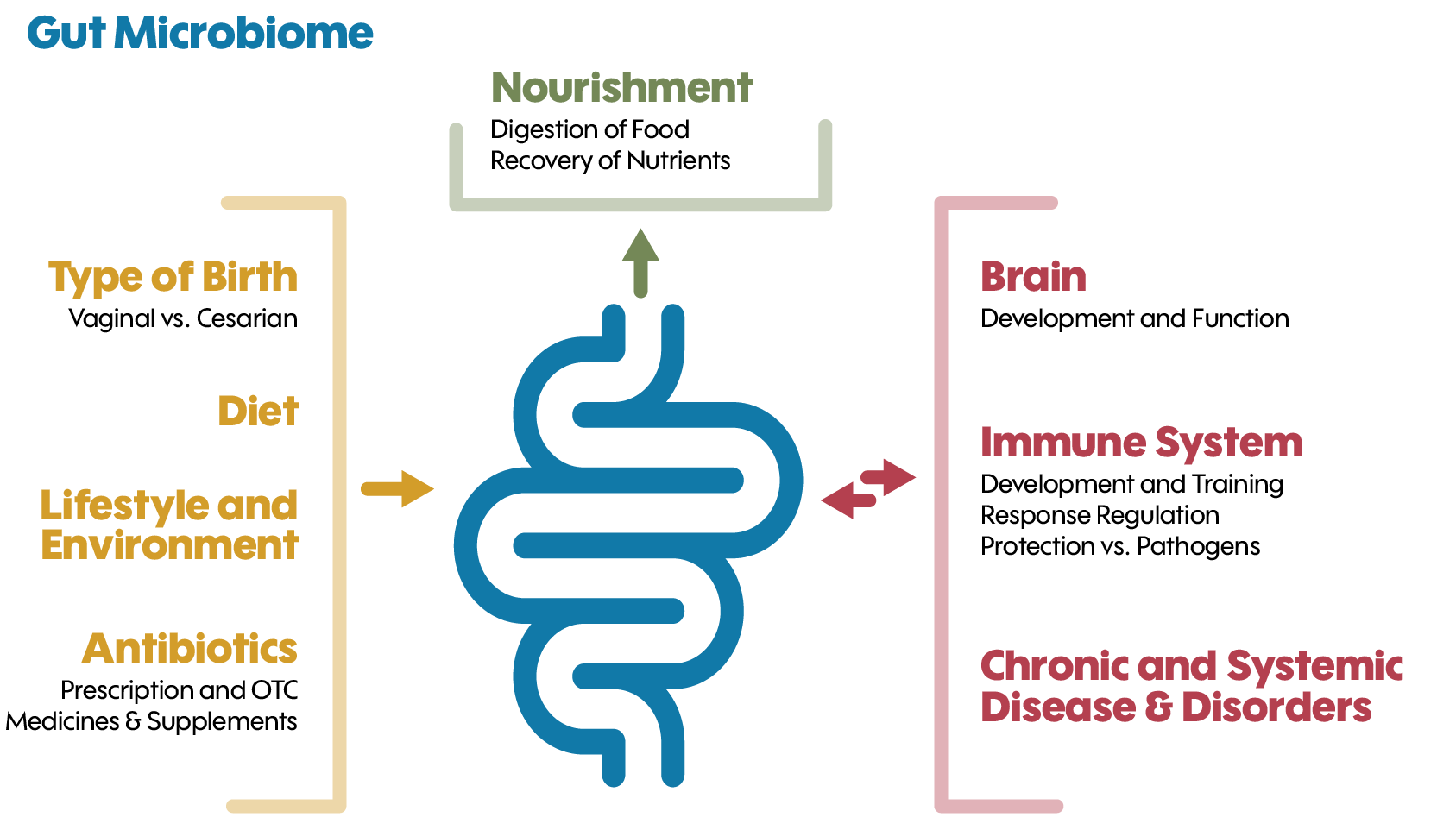Gut Microbiota and Our Health
The human gut microbiome constitutes the most complex and diverse microbial ecosystem on earth with over 100 trillion microbial cells.
Research into the exact role of the gut microbiome is rapidly evolving. We know that it plays an integral role in the development and regulation of our immune system, protecting us from infection and, unsurprisingly, in the metabolism of the food and the recovery of valuable nutrients. We also now realize that metabolites produced by gut microbiota reach and influence biological processes throughout our body. Scientists believe that gut microbiota may have a measurable role in our brain function and development, influencing mood, emotion, and behavior along with other important aspects of our personalities and our mental health.

It is thought that gut microbiota has a direct, or epigenetic role in the etiology and/or pathogenesis of many chronic and systemic diseases and disorders. Specifically, the gut microbiota has been associated with the following:
Autoimmune Diseases
- Alopecia
- Celiac Disease
- Lupus
- Multiple Sclerosis
- Rheumatoid Arthritis
- Type 1 Diabetes
Gastrointestinal Diseases
- Inflammatory Bowel Disease
- Irritable Bowel Syndrome
- Diverticulitis
- Clostridioides Difficile Infection
- Colorectal Cancer
Neurologic Disorders
- Anxiety
- Autism Spectrum Disorder
- Depression
- Epilepsy
Neurodegenerative Diseases
- Amyotrophic Lateral Sclerosis
- Alzheimer’s Disease
- Huntington’s Disease, Parkinson’s Disease
Systemic Diseases
- Asthma
- Obesity
- Nonalcoholic Fatty Liver Disease
- Type 2 Diabetes
Other Chronic Diseases
- Heart Disease
- Hypertension